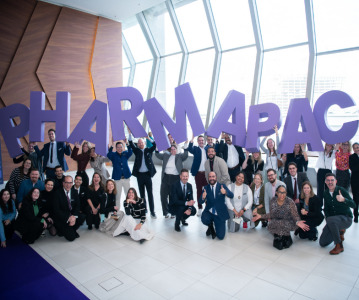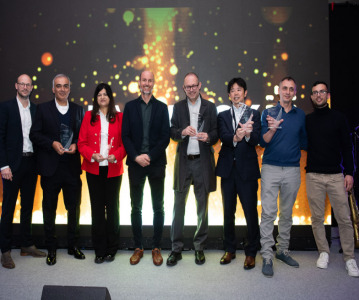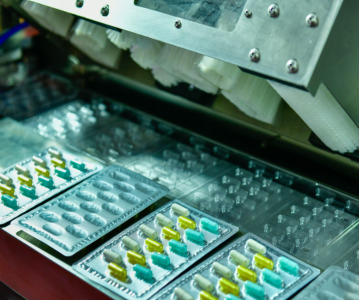Innovative antibody shows promise for personalised cancer treatment

Scientists from Uppsala University and KTH Royal Institute of Technology have developed a new type of antibody that could lead to safer and more effective cancer treatments.
This ‘3-in-1’ antibody works by combining three important functions: targeting cancer cells, delivering a drug directly to these cells, and activating the immune system to attack the cancer cells more strongly.
This research, published in Nature Communications, describes how the antibody boosts the effect of T cells – the body’s natural cancer-fighting cells – on tumours. The antibody both targets specific mutations found only in cancer cells (called neoantigens) and stimulates immune cells, which increases their response against the tumour.
Lead authors Sara Mangsbo, Professor at the Department of Pharmacy at Uppsala University, and Johan Rockberg, Professor at KTH, explain that this approach is designed for precision medicine, where treatments are tailored to each patient’s cancer. The new antibody has shown promising results in early tests; in blood samples, it activated the right immune cells and in animal tests it extended survival in mice and, at higher doses, even helped prevent some from developing cancer. Importantly, this approach also appears safer than many current treatments.
Additionally, the drug is designed to be easier and faster to produce. It consists of two parts: a bispecific antibody that can be mass-produced, and a custom-made peptide that can be quickly prepared for each patient’s specific cancer. According to Rockberg, “This setup reduces production costs and shortens the time needed to tailor the drug for individual patients, allowing them to start treatment sooner.”
The team’s goal is to create a cancer treatment that is more flexible, faster acting, and safer than existing options. Next, they plan to prepare the drug for human safety studies, with the aim of beginning clinical trials soon.
“We have been researching precision medicine for close to 15 years now, as well as how we can use antibodies to influence an important key protein (CD40) in the immune system,” commented Mangsbo. “We can now show that our new antibody method works as precision medicine for cancer.”
Source:
New antibody could be promising cancer treatment [Accessed November 12, 2024] https://www.eurekalert.org/news-releases/1064404
Related News
-
News A Day in the Life of Oncology Start-Up Co-Founder & CEO
This Women's month we are highlighting stories of women in the pharma industry (building on what we do every month to support women), so for the Day in the Life of we are speaking to Sharon Cunningham who is the Co-founder and CEO of Shorla On... -
News Women in Pharma: Manufacturing personal and team success
Our monthly Women in Pharma series highlights the influential lives and works of impactful women working across the pharmaceutical industry, and how the industry can work towards making the healthcare industry and workplace more equitable and inclusive... -
News A Day in the Life of a Head of Market Insights in med devices
The latest interview in the Day in the Life of Series is with Alper Hulusi, Head of Market Insights for ClariMed. Hulusi also works to try to get to know people, this time from the other side of pharma – the people that will be using the the... -
News CPHI Podcast Series: Packaging expert perspectives at Pharmapack 2025
This month's podcast episode sounds a little different, covering the latest event in Paris – Pharmapack 2025. Digital Editor Lucy Chard speaks to several experts direct from the floor of the show, bringing you right in on the action.&nbs... -
News Vertex Pharmaceuticals stock jumps as FDA approves non-opioid painkiller
UK-based Vertex Pharmaceuticals saw their stock shares soar as the US FDA signed off on the non-opioid painkiller Journavx, also known as suzetrigine, for patients with moderate to severe acute pain, caused by surgery, accidents, or injuries. -
News The 2025 Pharmapack Awards: recognising innovation and patient centricity
This year in Paris the Pharmapack Awards recognised the achievements across categories in the industry, aswell as including some new categories to highlight exceptional work and people. -
News Pharmapack 2025: From the Floor in Paris
Pharmpack gears up for another week in Paris at the Porte De Versailles. The two-day show taking place on the 22–23 January, will cover contract packaging, device innovation, and sustainability among other topics. -
News Visibility, Integration, and Opportunity with CPOs: A Pharmapack Interview
At Pharmapack 2025 in Paris the informative content tracks this year will feature a Contract Packaging track. A critically important topic for those working in the field, which speaker Alexander Schäfer from Sharp Services discusses in the fo...
Recently Visited
Position your company at the heart of the global Pharma industry with a CPHI Online membership
-
Your products and solutions visible to thousands of visitors within the largest Pharma marketplace
-
Generate high-quality, engaged leads for your business, all year round
-
Promote your business as the industry’s thought-leader by hosting your reports, brochures and videos within your profile
-
Your company’s profile boosted at all participating CPHI events
-
An easy-to-use platform with a detailed dashboard showing your leads and performance







